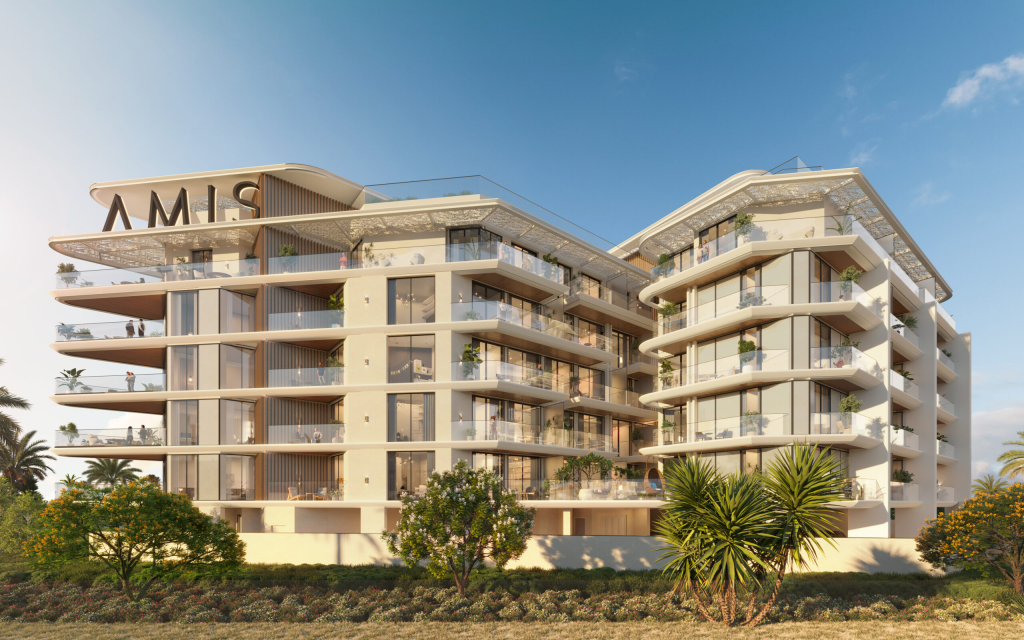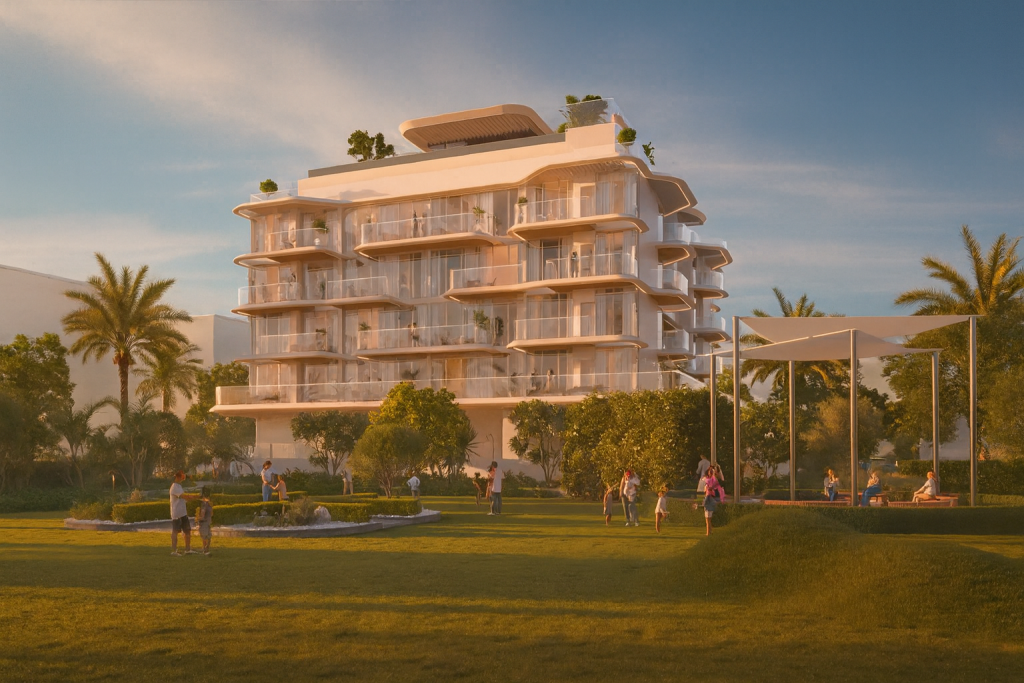
In a major show of confidence in Dubai’s luxury real estate market, First APAC Fund VCC, a Singapore‑based investment fund, has agreed to commit up to AED 5 billion (about USD 1.36‑1.4 billion) to AMIS Development, a Dubai‑based developer known for its high‑end residential projects.
This investment is being formalized via a Memorandum of Understanding (MoU), and is designed to help AMIS scale up its operations, expand its land bank, accelerate its pipeline of projects, deepen brand partnerships, and invest in technology and human talent.
What We Know So Far

Here are the key facts and context around the deal:
| Item | Details |
|---|---|
| Investor | First APAC Fund VCC, Singapore; managed by Pilgrim Partners Asia (PPA), licensed under Singapore’s Monetary Authority (MAS). |
| Developer receiving funds | AMIS Development, based in Dubai. Known for luxury residential developments. |
| Size of investment | Up to AED 5 billion (≈ USD 1.36‑1.4 billion). |
| Purpose | Expand land holdings; accelerate project pipeline; global brand partnerships; bolster technology and team capacity. |
| Recent successes of AMIS | “Woodland Residences” — AED 425 million project in Meydan’s District 11; features include a 100‑metre swimmable lagoon; completely sold out in one week; handover expected April 2026. |
Why It Matters
This deal is significant for several reasons:
- Signal of investor confidence
When a large external fund pulls the trigger on such a big investment, it indicates faith in the underlying market. The First APAC Fund’s commitment underscores ongoing global interest in Dubai’s real estate sector — particularly for luxury and branded living. - Acceleration of growth for AMIS
The resources committed will allow AMIS to move faster: acquiring more land, launching more projects, and potentially targeting more upscale or differentiated offerings. This kind of capital injection can help the company scale more aggressively than using internal cash flows alone. It also helps in elevating design, amenities, and end‑customer experience because more investment in technology, materials, partnerships, and staff becomes viable. - Market dynamics and competition
Dubai’s real estate market is competitive, especially in the luxury/residential segment. Having strong capital backing may give AMIS a competitive edge: in securing prime parcels of land; in launching projects more rapidly; in branding; in attracting buyers. If AMIS executes well, this could push other developers to raise their game in terms of amenity, design, or innovation. - Risk and execution challenges
Large investment comes with correspondingly large expectations. Past performance (e.g., Woodland Residences sold out quickly) is promising, but delivering on handover schedules, managing construction quality, ensuring project returns, navigating regulatory, supply chain or labor cost issues will all be critical. Also, the MoU “up to AED 5 billion” implies phased drawdowns and due diligence, so not all the money may be disbursed immediately. - Broader investment implications
The move highlights a trend of global capital flowing into UAE real estate, particularly from Asia. Singapore‑based funds being active in the MENA region reflects both the desire of investors to diversify, and Dubai’s attractiveness: stable infrastructure, strong legal/regulatory framework, appeal as a luxury/lifestyle hub. It may also inspire similar cross‑border partnerships.
What Are We Missing / Questions to Watch

While the announcement is exciting, there are areas that will be important to track to see whether the promises are fulfilled:
- Actual disbursement & tranche structure: How much has already been paid, and over what timeline will subsequent tranches be released?
- Specific projects funded: Which new or existing projects will benefit first from this funding? Are there flagship launches coming that are only possible because of this investment?
- Profitability & returns for AMIS investors / buyers: Will these funds translate into better returns or value for property‑buyers who invest now?
- Regulatory / approval risks: Land acquisition, planning permissions, construction approvals, and local market regulations can always impact timing or cost.
- Macroeconomic conditions: Interest rates, inflation (especially in construction materials, labor), supply‑chain disruptions, global economic slowdowns might affect project margins and consumer demand.
Implications for Buyers, Investors, and Dubai Real Estate
From the perspective of different stakeholders:
- Buyers / end‑users may benefit from higher quality finishes, better amenities, possibly quicker completion times, and perhaps more innovative product offerings (e.g., branded homes, smart tech, sustainable design). However, premium pricing is likely to persist given the investment scale.
- Investors in real estate stand to gain from AMIS scaling up, since greater capital could translate to more projects, possibly more choice, and possibly more liquidity (as projects are completed and properties come on the market). But risk remains: delivery, market demand, and pricing stability are still vital.
- Real estate developers & competition will likely be motivated to achieve higher standards, or enter into similar funding arrangements. There might be a “benchmark effect”: developers not backed by such funds may feel pressure to raise capital or improve product to stay competitive.
- Dubai’s reputation as a global real estate investment destination is strengthened. Deals like this reaffirm the city’s attractiveness for foreign investment, especially from institutional funds.
Conclusion

The AED 5 billion MOU between First APAC Fund VCC and AMIS Development is a landmark transaction with potential to reshape part of Dubai’s luxury real estate market. It reflects both confidence in AMIS’s track record (especially projects like Woodland Residences) and broader belief in the fundamentals of Dubai: strong demand, attractive location, stable regulatory environment, and a cosmopolitan buyer base.
Of course, much will depend on execution, timing, and macroeconomic headwinds. But if AMIS delivers on the promise, buyers will see new and possibly more ambitious real estate offerings; investors may find appealing returns; and Dubai’s reputation as a hub for cutting‑edge luxury property will likely get another boost.





Leave a Reply